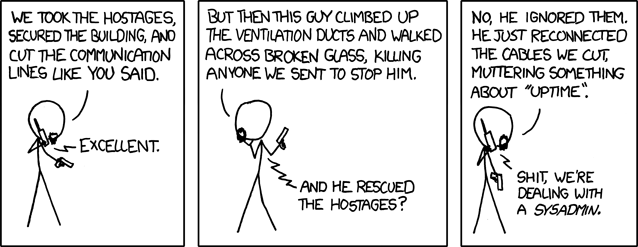In 2009, Infurious spent some of their hard-earned cash from the NBC Universal deal to send one of the team to SXSWi. So lurid were the tales of new technology, I resolved to get more of the Digital Circle to attend this conference. From Wikipedia: SXSW is one of the largest music festivals in the … Continue reading ““Music: an aperitif for the maw of Digital””
In 2009, Infurious spent some of their hard-earned cash from the NBC Universal deal to send one of the team to SXSWi. So lurid were the tales of new technology, I resolved to get more of the Digital Circle to attend this conference.
From Wikipedia:
SXSW is one of the largest music festivals in the United States, with more than 1,400 performers playing in more than 80 venues around downtown Austin over four days, in March. Though it is an industry-based event, SXSW Music links locally with events such as the annual Austin Music Awards show. SXSW is the highest revenue-producing special event for the Austin economy, with an estimated economic impact of at least $110 million in 2008.
In 1994, SXSW added film and interactive conferences. SXSW Film has become one of the world’s premiere film festivals, focusing on new directing talent. Similarly, SXSW Interactive has attracted a strong following among web creators and entrepreneurs. SXSW Interactive’s focus on emerging technology has earned the festival a reputation as a breeding ground for new ideas and creative technologies. Twitter launched at SXSW Interactive in 2007.
The music event has grown from 700 registrants in 1987 to nearly 12,000 registrants. SXSW Film and SXSW Interactive events attract approximately 11,000 registrants to Austin every March.
So, this year a small contingent from Northern Ireland headed off to Austin facilitated by InvestNI Trade and Export. You can see their timetable for future trade missions.
Bruce Sterling muses: ‘Is the digital world eating the music world?’ with some select quotes.
*Man, they don’t know the half of that… But on the other hand, we’re not halfway there yet. The music world was a kind of aperitif for the maw of digital.
…
“There are definitely two different mindsets. Interactive people, all they do is go to panels with smartphones and laptops and music people are like, ‘let’s get to a club, get a beer and watch a rock band’.”
…
“By midway through the festival the city’s hotel lobbies are abuzz with activity as the techies check out to leave and, sizing them up a little suspiciously, the music crowd arrive and check in….”
This comes mere days after I read FREE, by Wired’s Chris Anderson which demands reading (even just listening to the audiobook made me want the hardback).
The music industry wants paid for music whether you listen to it or not. Even if you buy a copy of a track from iTunes DRM-free and you want to shift that to another media, like put it on your iPod or record it onto a mix CD for the car (currently against UK law), the music industry would like you to pay more. So I pay a little to get one copy of a single performance of a well practised track and rightfully, this price should be decreasing. The effort put into the multiple copies is spread over the number of copies so with wider distribution, the unit price per song decreases. This sucks for bands which have poor distribution (i.e. little fame) and sucks even more for bands who aren’t very good.
The software industry would also like you, in general, to pay per copy but in the case of both open source and recent developments in mobile (i.e. the iPhone), the mass market has pushed the price of this commodity towards zero. Developers in the AppStore might complain the pricing of apps are too low but they have to realise that they contribute to that precedent and they put the value on their work. So software as a whole is decreasing in price – you can get better products for less money (consider Apple iWork versus Microsoft Office) and for the most part the market is very equitable
The reason I find it easier to pay for a digital copy of “Plants versus Zombies” than a copy of “Mountains” by Biffy Clyro is that bands have other methods of bringing in income. They can tour, they can sell merchandise, open supermarkets – they can become rock stars and get into the whole sex’n’drugs’n’rock’n’roll lifestyle. While this is the exception, it almost never happens for developers. The blood, sweat and tears which go into a good software product are, in my opinion, at least comparable to the effort put by musicians into recording a great song in a studio. Once done, the software developer puts the software on sale and can pray for sales. The developer will not tour, few will buy his merchandise. The exchange of small amounts of money for bits is pretty much his only income. The question of piracy therefore affects them differently – for the software developer, it undermines his only income, for the musician, piracy of the music track becomes marketing, a harbinger of the album, the T-shirt, the tour.
It is a shame that the most talked about experiments of music into the digital realm have all been either shams (Arctic Monkeys) or efforts by big bands with established fan bases (NIN, Radiohead). I’d love to hear more successes and failures of bands embracing digital and I’d love to see some software developers becoming rock stars.
End of the day, I want smart, creative people paid for their work.








